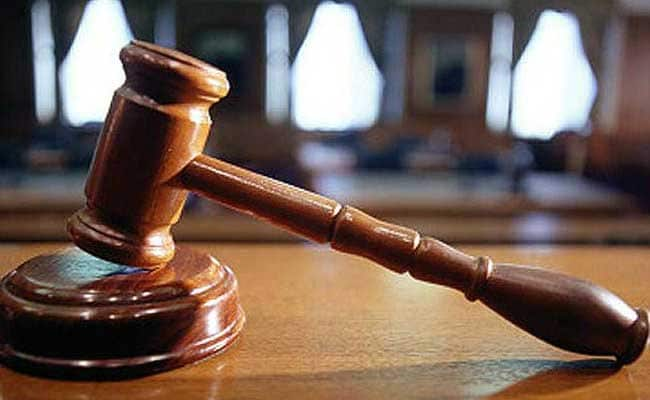
Pakistan's controversial military courts have sentenced 161 terrorists to death so far
ISLAMABAD:
Pakistan's controversial military courts which had sentenced 161 terrorists to death were discontinued today, two years after they were set up for speedy trial of hardcore terrorists following the deadly Taliban attack on an army school that killed nearly 150 children.
The courts were established through an amendment in the Constitution after the horrendous attack in Peshawar on December 16, 2014.
The move generated heated debate as the courts were billed by rights activists as violation of basic human rights as enshrined in the Constitution of the country and international charters.
However, they were allowed to function after the Supreme Court upheld as valid the 21st constitutional amendment and the Pakistan Army (Amendment) Bill, 2015, enacted by Parliament in 2015.
The amendment ensured that the courts will end after two years through insertion of the "sunset clause".
There was no formal statement either from the government or the military announcing the end of the extraordinary powers for trial of civilians by the military, as they are deemed to end after a fixed time period of two years.
The first convictions under the military court were in April, 2015 and the last ones were pronounced on December 28, 2016.
The courts were given 275 cases during two-year and they sentenced 161 terrorists to death, whereas another 116 were given varying jail terms, mostly life sentences.
Only 12 convicts have been executed so far, according to the army.
The trials resulted in convictions, imprisonment of and death sentences against terrorists belonging to al-Qaeda, Tehreek-i-Taliban Pakistan, Jamaatul Ahrar, Toheedwal Jihad Group, Jaish-e-Muhammad, Harkat-ul-Jehad-i-Islami, Lashkar-i-Jhangvi, Lashkar-i-Jhangvi Al-Alami, Lashkar-i-Islami, and Sipah-i-Sahaba.
The perpetrators of the Peshawar school attack were among the militants hanged after conviction in the military courts.
The terrorism cases which were sent to military courts from now onward will be heard in the anti-terrorism courts already functional in the country.
The special court system ended after another anti-terror law known as Protection of Pakistan Act expired last year. It allowed for detention of terrorists for 90 days without permission of the courts.
Pakistan's newly-appointed army chief General Qamar Javed
Bajwa last month confirmed the death sentences of 21 "hardcore
terrorists" by the military courts.
The courts were established through an amendment in the Constitution after the horrendous attack in Peshawar on December 16, 2014.
The move generated heated debate as the courts were billed by rights activists as violation of basic human rights as enshrined in the Constitution of the country and international charters.
However, they were allowed to function after the Supreme Court upheld as valid the 21st constitutional amendment and the Pakistan Army (Amendment) Bill, 2015, enacted by Parliament in 2015.
The amendment ensured that the courts will end after two years through insertion of the "sunset clause".
There was no formal statement either from the government or the military announcing the end of the extraordinary powers for trial of civilians by the military, as they are deemed to end after a fixed time period of two years.
The first convictions under the military court were in April, 2015 and the last ones were pronounced on December 28, 2016.
The courts were given 275 cases during two-year and they sentenced 161 terrorists to death, whereas another 116 were given varying jail terms, mostly life sentences.
Only 12 convicts have been executed so far, according to the army.
The trials resulted in convictions, imprisonment of and death sentences against terrorists belonging to al-Qaeda, Tehreek-i-Taliban Pakistan, Jamaatul Ahrar, Toheedwal Jihad Group, Jaish-e-Muhammad, Harkat-ul-Jehad-i-Islami, Lashkar-i-Jhangvi, Lashkar-i-Jhangvi Al-Alami, Lashkar-i-Islami, and Sipah-i-Sahaba.
The perpetrators of the Peshawar school attack were among the militants hanged after conviction in the military courts.
The terrorism cases which were sent to military courts from now onward will be heard in the anti-terrorism courts already functional in the country.
The special court system ended after another anti-terror law known as Protection of Pakistan Act expired last year. It allowed for detention of terrorists for 90 days without permission of the courts.
Pakistan's newly-appointed army chief General Qamar Javed
Bajwa last month confirmed the death sentences of 21 "hardcore
terrorists" by the military courts.
Track Latest News Live on NDTV.com and get news updates from India and around the world

